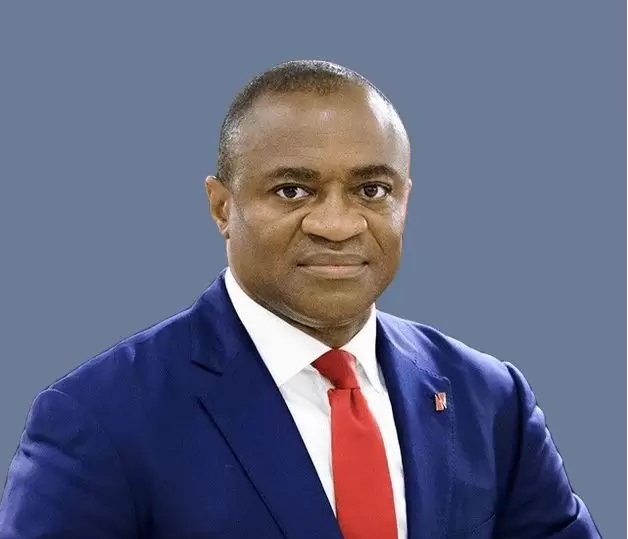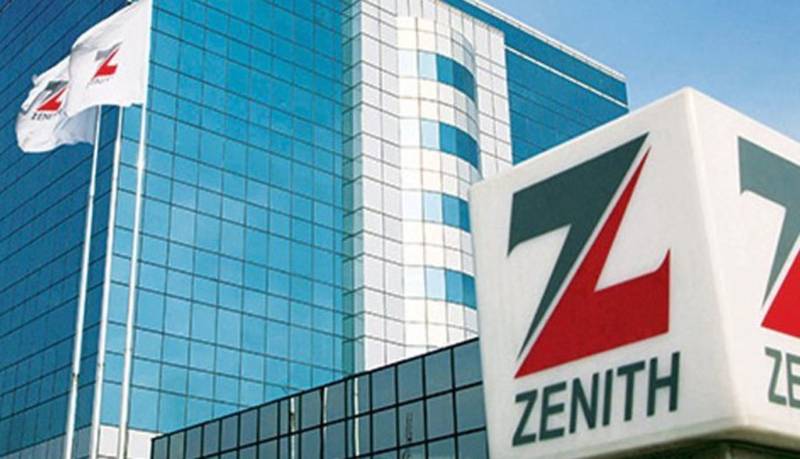Business
World Bank Pegs Nigeria’s Growth at 2.1 Per cent in 2020

The World Bank Group has raised Nigeria’s growth expectations in 2020 to 2.1 per cent, describing it as an “edge up”, a development that confirms the country’s continued stay in sluggish economic path for another calendar year.
It also warned that the macroeconomic framework is characterised by multiple exchange rates, foreign exchange restrictions, high persistent inflation, and a central bank targeting manifold objectives that are not conducive to confidence.
Meanwhile, the global economic growth is also forecast to edge up to 2.5 per cent in 2020, as investment and trade gradually recover from last year’s significant weakness, but downward risks persist.
The World Bank’s “January 2020 Global Economic Prospects”, however noted that growth among advanced economies as a group is anticipated to slip to 1.4 per cent in 2020, in part due to continued softness in manufacturing.
On the other hand, growth in emerging market and developing economies is expected to accelerate this year to 4.1 per cent, though not broad-based, but improved performance of a small group of large economies, some of which are emerging from a period of substantial weakness.
The global institution noted that in Angola, Nigeria, and South Africa- the three largest economies in the region, growth was subdued in 2019, remaining well below historical averages and contracting for a fifth consecutive year on a per capita basis.
Beyond the large economies, growth also deteriorated in several industrial commodity exporters in 2019, as weaker prices and softer demand dampened activity in extractives sectors, such as in the Democratic Republic of Congo, Liberia, and Namibia.
The World Bank Group Vice President for Equitable Growth, Finance and Institutions, Ceyla Pazarbasioglu, said: “With growth in emerging and developing economies likely to remain slow, policymakers should seize the opportunity to undertake structural reforms that boost broad-based growth, which is essential to poverty reduction.
“Steps to improve the business climate, the rule of law, debt management, and productivity can help achieve sustained growth.”
The bank’s Prospects Group Director, Ayhan Kose, added: “Low global interest rates provide only a precarious protection against financial crises. The history of past waves of debt accumulation shows that these waves tend to have unhappy endings.
“In a fragile global environment, policy improvements are critical to minimize the risks associated with the current debt wave.”
Regional growth is expected to pick up to 2.9 per cent in 2020, assuming investor confidence improves in some large economies, energy bottlenecks ease, a pickup in oil production contributes to recovery in oil exporters and robust growth continues among agricultural commodity exporters.
The forecast is weaker than previously expected reflecting softer demand from key trading partners, lower commodity prices, and adverse domestic developments in several countries.
A sharper-than-expected deceleration in major trading partners such as China, the Euro Area, or the United States, would substantially lower export revenues and investment.
A faster-than-expected slowdown in China would cause a sharp fall in commodity prices and, given Sub-Saharan Africa’s heavy reliance on extractive sectors for export and fiscal revenues, weigh heavily on regional activity.
A broad-based rise in government debt has led to sharp increases in interest burdens, crowding out noninterest expenditure and raising concerns about debt sustainability.
Insecurity, conflicts, and insurgencies— particularly in the Sahel—would weigh on economic activity and food security in several economies. Extreme weather events are becoming more frequent as the climate changes, posing a significant downside risk to activity due to the disproportionate role played by agriculture in many economies in the region.
Still, about a third of emerging market and developing economies are projected to decelerate this year due to weaker-than-expected exports and investment.
U.S. growth is forecast to slow to 1.8 per cent this year, reflecting the negative impact of earlier tariff increases and elevated uncertainty. Euro Area growth is projected to slip to a downwardly revised 1 per cent in 2020 amid weak industrial activity.
Downside risks to the global outlook predominate, and their materialization could slow growth substantially. These risks include a re-escalation of trade tensions and trade policy uncertainty, a sharper-than expected downturn in major economies, and financial turmoil in emerging market and developing economies.
Even if the recovery in emerging and developing economy growth takes place as expected, per capita growth would remain well below long-term averages and well below levels necessary to achieve poverty alleviation goals.
The Guardian
Business
UBA Announces Strategic Expansion into Key Markets Across Africa

UBA Group senior executives recently concluded the Group’s Half Year Business Review. Held at global headquarters in Lagos Nigeria, Group Managing Director/CEO, Oliver Alawuba, brought together executives responsible for UBA’s twenty-four countries of operation.
It was an opportunity to restate the Group’s pan-African strategy, and commitment to further expanding the Group’s coverage across high potential markets across Africa, while also deepening its operations in its existing twenty African presence markets. With over 51.7% of Group revenues from ex Nigerian operations, UBA’s journey to being Africa’s most diversified financial services group was clearly in evidence,
The international strategic intent reinforces with the Group’s intention to deliver innovative financial solutions to its fast-growing global customer base. The strategy demonstrates UBA’s unique position as Africa’s global bank and ability to leverage growth opportunities in emerging and leading African markets.
The Group commenced its Pan African journey, with its entry into Ghana in 2004, followed by rapid expansion into 18 additional African markets. Today, as a resilient and future-focused institution, UBA continues to push boundaries by connecting Africa to the world and the world to Africa.
Mr Alawuba highlighted the Group’s expansion plans, disclosing that the Group is excited about the vast opportunities that the new markets present, a testament to UBA Group’s confidence in the African economy, providing world-class banking services that meet the continent’s evolving needs.
“UBA’s vision is clear – we are building a truly global institution anchored in Africa, but serving customers across continents. Further strategic expansion positions us to unlock new opportunities, support intra-Africa trade, and deliver world-class banking experiences wherever our clients choose to do business,” Alawuba said.
“In Europe, UBA has operations in the United Kingdom and upgrading its license in France, expanding its capacity to serve cross-border trade, investment flows, and the African diaspora, complementing our over 40-year presence in NY. These moves signal a clear message of UBA’s intent to reshape the competitive landscape”, Alawuba further said.
As part of the Group’s plan to expand its global presence, UBA, in January, announced plans to open operations in Saudi Arabia.
Operating in twenty African countries and the United Kingdom, the United States of America, France and the United Arab Emirates, UBA provides retail, commercial and institutional banking services, leading financial inclusion and implementing cutting edge technology. United Bank for Africa is one of the largest employers in the financial sector on the African continent, with 25,000 employees’ group wide and serving over 45 million customers globally.
Business
Sustainable Education Ecosystem: Ecobank Unveils Customer Value Proposition

Ecobank Nigeria, an affiliate of the leading pan-African banking group, Ecobank Group, has announced a comprehensive suite of innovative financial solutions designed to support all key stakeholders within the education ecosystem. These offerings are aimed at driving financial inclusion, operational efficiency, and sustainable growth across the sector.
For school owners and educational leaders, Ecobank offers cash-backed loans to support both operational and capital expenditures. These are complemented by treasury management tools that enhance financial oversight, along with digital collection platforms that ensure seamless and efficient school fee processing. Teachers and non-teaching staff also stand to benefit significantly. Ecobank provides salary access tools that enable timely and flexible income management, career development programs to support continuous professional growth, and financial wellness plans designed to promote long-term financial stability.
Suppliers and partners within the education value chain benefit from tailored financial solutions such as invoice factoring for improved cash flow, inventory financing to maintain operational continuity, and marketplace visibility to expand their reach and business opportunities within the sector.
Speaking at the unveiling event in Lagos, Kola Adeleke, Executive Director, Commercial and Consumer Banking at Ecobank Nigeria, reaffirmed the bank’s commitment to empowering the education sector with practical financial solutions that address real-world challenges, enabling all participants, from institutions and educators to families and partners, to thrive.
“Our integrated financial and non-financial propositions form part of a broader strategy to strengthen our leadership in the education financing space, while contributing meaningfully to national and continental goals around access, equity, and excellence in learning. We have designed these solutions to meet the diverse needs of school proprietors, teaching and non-teaching staff, students, and parents. Ecobank is committed to empowering the education sector through seamless collections, access to credit, and a suite of sustainability-focused offerings. Education is a pillar of national development, and we recognize the sector as an integrated system of needs and opportunities. Our goal is to support this system not just with financing but also with digital tools, career development programs, and sustainability initiatives,” he said.
Also speaking, Adebukola Ademiluyi, Head of Education, Faith, and Social Services at Ecobank Nigeria, highlighted the bank’s commitment to affordable and inclusive financing options. She noted that by integrating smart financing with sustainability, digital infrastructure, and inclusive participation, Ecobank is pioneering a full-service banking model tailored to the realities of Africa’s education sector.
“More than just funding, we are enabling seamless school management systems through API partnerships that digitize operations such as student registration, staff payroll, inventory management, and parental communication. We also place strong emphasis on supporting parents and guardians, providing financial planning tools, access to student loans, merit-based scholarships, and child progress monitoring systems. These innovations are designed to ease financial burdens and deepen parental involvement in their children’s academic journeys,” she said.
Business
Zenith Bank Retains Top Position in Nigeria by Tier-1 Capital

Zenith Bank Plc has retained its position as the Number One Bank in Nigeria by Tier-1 Capital for the sixteenth consecutive year, in the 2025 Top 1000 World Banks’ Rankings, published by The Banker, Financial Times Group, United Kingdom.
This ranking places Zenith Bank Plc as the 581st Bank globally, with a Tier-1 Capital of $2 billion.
The global rankings, published in the July 2025 edition of The Banker, was based on the 2024 year-end Tier-1 capital of banks. This is the primary basis for most international organizations’ assessments of banks.
Commenting on this achievement, the Group Managing Director/CEO of Zenith Bank Plc, Dame (Dr.) Adaora Umeoji, OON, said, “We are thrilled to have retained our position yet again as the Number One Bank in Nigeria by Tier-1 capital for the 16th consecutive year. This achievement is a reflection of the bank’s robust financial performance, prudent risk management and steadfast dedication to delivering exceptional value to our customers and stakeholders”.
She thanked the Founder and Chairman, Jim Ovia, CFR, for his visionary and transformative leadership which has played a pivotal role in cultivating a resilient and thriving institution. She also expressed her deepest appreciation to the bank’s esteemed customers for their continued loyalty to the Zenith brand, the Board for the sound corporate governance, and the staff for their relentless & tireless efforts in ensuring the bank’s success.
Tier-1 Capital describes capital adequacy, the core measure of a bank’s financial strength from a regulator’s perspective. According to the ranking, Tier-1 Capital, as defined by the Bank for International Settlements (BIS) guidelines, includes loss-absorbing capital, i.e., common stock, disclosed reserves, retained earnings, and minority interests in the equity of subsidiaries that are less than wholly owned. A strong Tier-1 capital ratio boosts investor and depositor confidence, indicating the Bank is well-capitalised and financially stable.
According to the audited financial results for the 2024 financial year presented to the Nigerian Exchange (NGX), the Bank recorded a double-digit growth of 86% in gross earnings, increasing from N2.13 trillion in 2023 to N3.97 trillion in 2024. This growth was driven by a 138% increase in interest income, supported by investment in high-yield government securities, and growth in the Bank’s loan book.
Zenith Bank’s profit before tax (PBT) rose by 67%, reaching N1.3 trillion in 2024 from N796 billion in 2023. This performance saw the bank record an unprecedented total dividend payout of N195.67 billion at N5.00 per ordinary share in the 2024 financial year.






